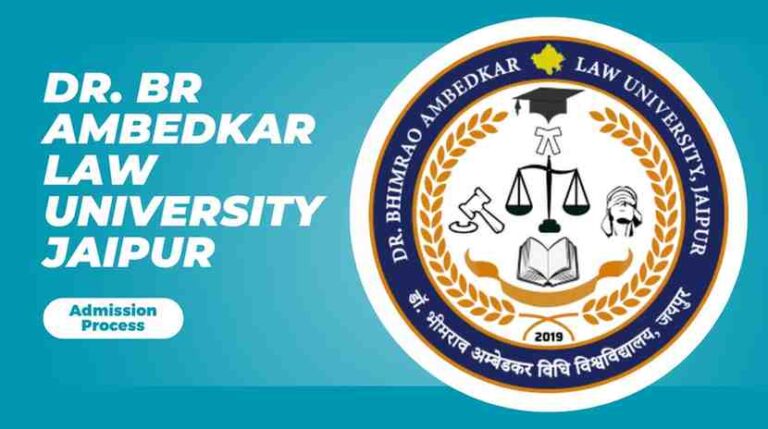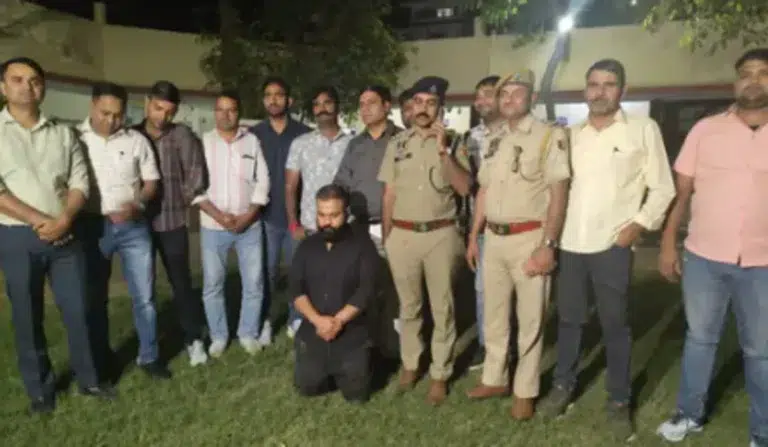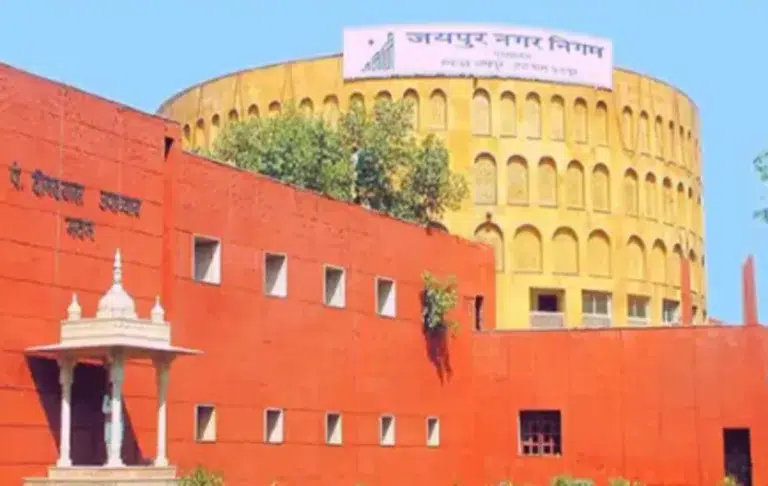Dr Bhimrao Ambedkar Law University, or ALU, is one of the important institutes for legal education in India, which is situated in Jaipur, Rajasthan. It has been established with the provisions of the Dr. Bhimrao Ambedkar Law University Act of 2019 with the intention of facilitating both theoretical and practical knowledge of law and excellence in academic work. The university, named after the maker of the Indian Constitution, is conceived in the motive of creating legal professionals who are not only good but also work for social justice.
Courses Offered at Dr Bhimrao Ambedkar Law University Jaipur
ALU offers a number of programs that cater well for various interests in the legal field.
- B.A. LL.B. (Hons.): This longitudinal five-year curriculum melds Bachelor Arts with law degrees, with holistic education in humanities and legal studies. The curriculum prepares students for a wide array of legal careers-with emphasis on liberal arts.
- B.B.A. LL.B. (Hons.): A similar five-year course combining Business Administration with Law would be suitable for a person with aspirations of becoming a corporate lawyer, business lawyer, or manager with legal capabilities.
- LL.B. (Hons.): This is a three-year program specifically aimed at law-grazing graduates wishing to take up law as their second degree. This program is a highly focused study of legal subjects, aimed at accelerating students’ entry as practitioners into the field.
- LL.M.: The Master of Laws program varies from one to two years, offering specializations in areas like:
- Constitutional Law & Human Rights
- Intellectual Property Law
- Criminal Law and Criminal Justice Administration
- And several others based on faculty and current legal trends.
- Diploma Programs:
- Diploma in Labour Laws (DLL)
- Diploma in Corporate Laws (DCL)
- Diploma in Forensic Science (DFS) – An unusual prospective of ethnoscience, which conjoin the art of law for students given the responsibility for something equivalent to that for the other different beyond the route of legal-forensic interpretation.
- Certificate Courses: These short-term courses focus on specific areas like:
- Certificate Course in Cyber Law
- Certificate Course in Intellectual Property Rights
- PhD in Law: With a view to offering an opportunity to contribute to legal scholarship, this program is geared towards those who aspire to advanced research or academic careers in law.
Eligibility Criteria for Admission
Undergraduate Programs:
- B.A./B.B.A. LL.B. (Hons.):
- Education: The candidate should have completed 10+2 or equivalent examination from a recognized board of education with a minimum of 45% marks in aggregate, whereas for SC/ST candidates, it is 40%.
- Age: No upper age limit, ensuring broader access to legal education.
- LL.B. (Hons.):
- Education: Requires a bachelor’s degree from any discipline with a minimum of 45% marks in aggregate (40% for SC/ST candidates).
- Age: No specific age limit for this program either.
Postgraduate Programs:
- LL.M.:
- Education: An LL.B. degree or equivalent with at least 50% marks. SC/ST candidates require 45%.
- Entrance: Scores from national tests like CLAT PG or university-specific entrance exams might be necessary.
Diploma and Certificate Courses:
- Eligibility for most of these courses usually requires a bachelor’s degree in any discipline; however, certain courses may require legal courses as a prerequisite. Specific eligibility may vary according to the object of study.
PhD:
- Education: An LL.M. or equivalent master’s degree with at least 55% marks.
- Process: Usually involves submitting a research proposal, clearing entrance tests, and interviews.
Admission Process
1. Application:
- Online Submission: One can apply for admission at the new ALU website alujaipur.ac.in/. Applications are made through entering personal details, academic details and uploading documents, which include ID proofs, photographs and academic certificates.
- Application Fee: The fee for application ranges from INR 1,100 to INR 1,560, depending on the course, payable online.
2. Entrance Examination:
- CLAT for UG and PG: DBALU might use CLAT scores for undergraduate and postgraduate courses. Alternatively, the university conducts its own entrance exams for certain programs:
- BA LLB/BBA LLB: Tests include sections on English, General Knowledge, Legal Aptitude, and Reasoning.
- LLM: Focuses on jurisprudential concepts, international law, and specialized legal knowledge.
3. Merit List and Counseling:
- Once the exam has been concluded, merit lists are prepared according to the entrance scores obtained by students. They are then called up for counseling sessions in which these ranks would be used to select courses depending on the availability of seats.
- Counseling is the most tedious part in which students choose what specialty or subject they want to pursue. Generally, counseling would consist of more than one round for seat filling.
4. Document Verification:
- Verification of documents like educational certificates, caste certificates (for reserved category), and other relevant evidence may occur in counseling or even prior to final admission.
5. Admission Confirmation:
- Once a seat is secured, students must pay the admission fees to confirm their place. The fee structure includes:
- Tuition Fees: Varies by course, with annual fees for UG programs around INR 50,000 for general category (discounts for SC/ST).
- Other Fees: Including library, lab, and miscellaneous charges.
6. Scholarships and Financial Aid:
- ALU offers:
- Merit-cum-Means Scholarship: For economically weaker students who perform well in entrance exams.
- SC/ST Scholarship: Specific to students from these communities, providing financial relief.
- Minority Scholarship: Aimed at minority students, helping to cover educational costs.
Key Dates and Deadlines:
- Admission Notification: Usually around March or April.
- Application Start and End: Applications open by April and must be submitted by June or July.
- Entrance Exam Dates: CLAT or university exams typically in May or June.
- Merit List Declaration: Late June to early July.
- Counseling: July to August.
- Last Date for Admission: By August or September, before the academic session starts.
Facilities and Infrastructure
ALU is equipped with:
- Library: A vast collection of legal texts, journals, and access to legal databases.
- Moot Courts: For practical training through mock trials and debates.
- Computer Labs: With legal software and internet facilities to aid research.
- Hostels: Separate facilities for boys and girls with modern amenities.
- Sports and Recreation: Promoting a balanced lifestyle for students.
Career Prospects and Placements
The university has a structured placement cell that:
- Arranges campus drives with law firms, corporate legal departments, and NGOs and government agencies.
- Offers internships which are very vital for practical exposure.
- Provides counseling and guidance on a career best suitable for him/her in the legal field.
Dr. Bhimrao Ambedkar Law University has an emblem in the mission that involved producing efficient and virtuous lawyers, which is the course of legal education. The courses diversified and eligibility criteria-specific with an applicable clear admission process to maximize the potential of the university so that students learn how to handle the complication of life in the legal world. Thus, students aspiring to get into this prestigious university should keep their ears open for announcements from the university and track name deadlines besides preparing for the entrance examination to determine selection.
RUHS Jaipur Admission Process 2025: A Step-by-Step Guide




